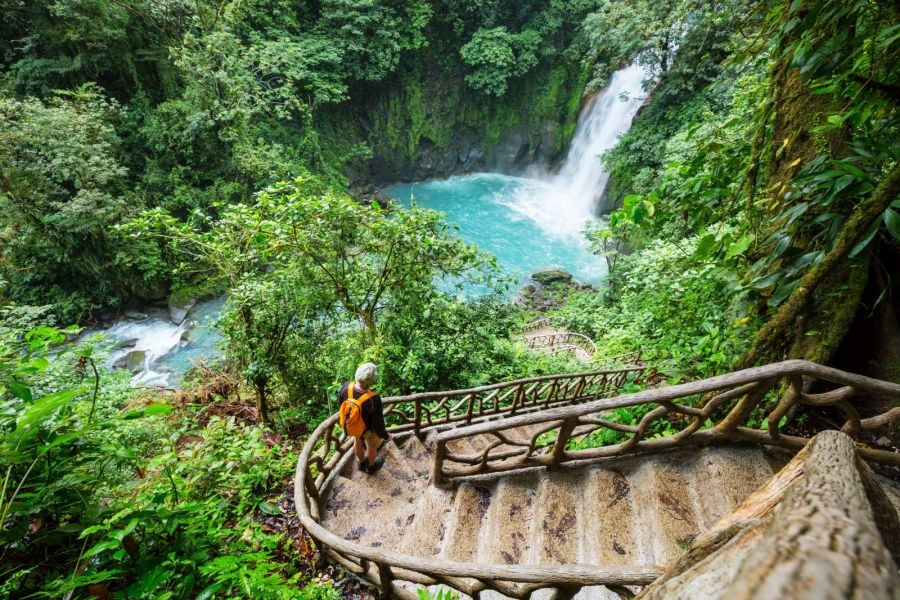Introduction
In recent years, eco-tourism has become a cornerstone of New Zealand's tourism industry. The sector has witnessed a remarkable growth rate of 20% over the past five years, driven by increasing global awareness of environmental issues and a growing desire for sustainable travel options. This trend is not just a fleeting phase but a significant shift in how travel is perceived and practiced. eco-tourism is now a vital part of New Zealand’s economy, contributing to job creation, sustainable development, and environmental conservation. As we dive deeper into the dynamics of this burgeoning market, we'll explore the factors driving this growth and what it means for the future of travel in New Zealand.
Understanding the Growth: Key Drivers of eco-tourism in New Zealand
1. The Role of New Zealand’s Unique Biodiversity
New Zealand's unparalleled natural landscapes and biodiversity are major attractions for eco-tourists. The country is home to unique flora and fauna, with approximately 80% of its plant life found nowhere else on Earth. This unique biodiversity acts as a magnet for eco-conscious travelers seeking authentic and sustainable experiences.
2. Government Initiatives and Policies
The New Zealand government has been proactive in promoting eco-tourism through various policies and initiatives. According to the Ministry of Business, Innovation, and Employment (MBIE), government strategies have focused on improving sustainability practices within the tourism sector, providing funding for conservation projects, and promoting eco-friendly tourism activities. These efforts have not only preserved the environment but have also attracted tourists who value sustainability.
3. Changing Consumer Preferences
Consumers worldwide are becoming increasingly conscious of their environmental impact, and this trend is reflected in the travel industry. A study by Stats NZ indicated that 60% of international tourists visiting New Zealand prioritize environmentally friendly practices when choosing their travel destinations. This shift in consumer preferences has significantly influenced the growth of eco-tourism in the country.
Real-World Case Studies: Success Stories in New Zealand’s eco-tourism
Case Study: Zealandia – A Conservation Success Story
Problem: Zealandia, a wildlife sanctuary in Wellington, was established to protect and restore New Zealand's native biodiversity. However, it faced challenges in attracting visitors while maintaining its conservation goals.
Action: Zealandia implemented an innovative eco-tourism strategy that combined education with conservation. They offered guided tours, educational programs, and interactive experiences that highlighted the importance of biodiversity and conservation.
Result: Visitor numbers increased by 35% over two years, and Zealandia became a leading example of successful eco-tourism. The sanctuary also achieved significant conservation milestones, including the reintroduction of several endangered species.
Takeaway: Zealandia's success demonstrates the potential of eco-tourism to simultaneously achieve conservation goals and attract visitors. By focusing on education and unique experiences, eco-tourism operators can create sustainable business models.
Case Study: Abel Tasman National Park – Balancing Tourism and Conservation
Problem: Abel Tasman National Park faced the challenge of balancing tourist influx with environmental conservation. The increasing number of visitors posed a threat to the park’s fragile ecosystems.
Action: The park management introduced strict visitor guidelines, limiting the number of daily visitors and implementing a booking system for popular tracks. They also partnered with local communities to promote conservation efforts and offer eco-friendly accommodation options.
Result: The park successfully reduced its environmental footprint while maintaining visitor satisfaction. The initiative led to a 25% reduction in overcrowding and increased local community involvement in conservation activities.
Takeaway: Abel Tasman National Park's approach highlights the importance of sustainable tourism management. By regulating visitor numbers and involving local communities, eco-tourism can be a sustainable and profitable venture.
Pros & Cons of eco-tourism in New Zealand
Pros
- Environmental Conservation: eco-tourism promotes the preservation of natural habitats and biodiversity.
- Economic Benefits: It contributes significantly to New Zealand’s economy, supporting local businesses and creating jobs.
- Community Engagement: Local communities benefit from eco-tourism through increased revenue and participation in conservation efforts.
- Educational Opportunities: eco-tourism offers educational experiences that raise awareness about environmental issues.
Cons
- Potential Overcrowding: Popular eco-tourism sites may face challenges with visitor management, leading to environmental degradation.
- High Costs: Sustainable practices can be costly to implement, potentially increasing prices for tourists.
- Seasonal Fluctuations: eco-tourism may be subject to seasonal variations, affecting income stability for local communities.
Common Myths & Mistakes in eco-tourism
Myth: eco-tourism is Just a Marketing Gimmick
Reality: eco-tourism is a legitimate and growing sector focused on sustainability and conservation. It provides real benefits to the environment and local communities.
Myth: All eco-tourism Activities are Expensive
Reality: While some eco-tourism experiences may have higher initial costs, they often provide long-term value through unique and sustainable experiences. Many operators also offer affordable options to cater to a wider audience.
Myth: eco-tourism Doesn't Contribute to Economic Growth
Reality: eco-tourism is a significant contributor to New Zealand's economy. It creates jobs, supports local businesses, and promotes sustainable development. According to MBIE, eco-tourism generates substantial revenue and economic opportunities.
Future Trends & Predictions for eco-tourism in New Zealand
The future of eco-tourism in New Zealand looks promising, with several emerging trends set to shape the industry. By 2028, it is predicted that eco-tourism will account for 30% of the country’s total tourism revenue. This growth will be driven by continued government support, technological advancements, and increasing consumer demand for sustainable travel options.
One such trend is the integration of technology in eco-tourism experiences. Virtual reality and augmented reality are being used to enhance educational experiences and provide virtual tours of remote locations, making eco-tourism more accessible and engaging for a wider audience.
Additionally, there is a growing emphasis on community-based tourism, where local communities play a central role in offering authentic and sustainable experiences. This approach not only benefits local economies but also ensures the preservation of cultural heritage and natural resources.
Conclusion
As eco-tourism continues to flourish in New Zealand, it presents a unique opportunity for sustainable growth and environmental conservation. By embracing sustainable practices and leveraging technology, the eco-tourism sector can provide meaningful experiences for travelers while contributing to the preservation of New Zealand's natural beauty and cultural heritage.
As we look to the future, it is essential for stakeholders to collaborate and innovate, ensuring that eco-tourism remains a vibrant and sustainable part of New Zealand’s tourism landscape. What are your thoughts on the future of eco-tourism in New Zealand? Share your insights in the comments below!
People Also Ask (FAQ)
- How does eco-tourism impact businesses in New Zealand?
eco-tourism drives economic growth by increasing revenue for local businesses and creating job opportunities. It also promotes sustainable practices and environmental conservation.
- What are the biggest misconceptions about eco-tourism?
One common myth is that eco-tourism is merely a marketing gimmick, but it is a legitimate sector focused on sustainability. Research shows it significantly contributes to environmental and economic benefits.
- What are the best strategies for implementing eco-tourism?
Strategies include promoting sustainable practices, involving local communities, and leveraging technology to enhance experiences. It is also important to balance tourism with conservation efforts for long-term success.
Related Search Queries
- New Zealand eco-tourism destinations
- Benefits of eco-tourism in New Zealand
- sustainable travel options in New Zealand
- Eco-friendly accommodations in New Zealand
- Government policies supporting eco-tourism in New Zealand
- Impact of eco-tourism on the environment
- Community-based tourism in New Zealand
- Technology in eco-tourism experiences
- Future of eco-tourism in New Zealand
- eco-tourism job opportunities in New Zealand

































loraheron01734
4 months ago